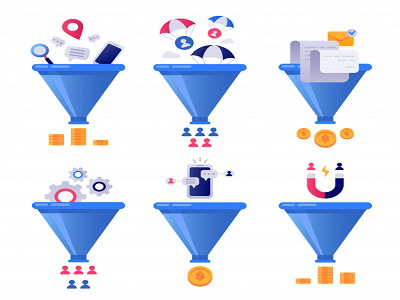Web Filtering Software for Schools
Schools like every other organization today have started using technology more and more to make sure that their students are not left behind in this new world of technology. Technology has entrenched its roots into our lives so deep that if anyone fails to keep up with the evolving world of technology they would be left behind in life too. Everything that we need to do or should be doing has to be done with the use of internet or by the use of some other technology.
Schools have moved away from the traditional use of books and notebooks to Chromebooks but nothing good comes with a little bad. The World Wide Web is a place of endless possibilities. The information on it can be both damaging and beneficial for students but it is the responsibility of schools to make sure that the feeble minds of students can only access the good things.

What is Web Filtering?
It is a process by which a restriction can be placed upon what website one can visit on his or her computer. These filters can work using either a whitelist or a blacklist: The former allows access only to sites specifically chosen by whoever set up the filter, and the latter restricts access to undesirable sites as determined by the standards installed in the filter. It usually operates through a software which would look at the URL’s of the desired sites and search for keywords, and then decide whether it should be blocked or no. These filters may be added by three possible ways to someone’s computer a browser extension program, a standalone program or as a part of an overall security solution.
Web filtering is more commonly known as URL filtering. It is very different from content filtering and must not be confused with it. They both operate differently.
How does Web Filtering or URL Filtering work?
Web filtering matches all web traffic against a characterized database, and afterward allows or denies access to a website dependent on whether it is found in the database. A URL filtering database will allot indexed sites a URL class, or gathering. It will likewise characterize the states of access to that URL. For example the possible things that could be done to an address are;
- Blocking; Defined on a site by site basis. This can apply to distracting sites, like social media or local news, or sites known to host various forms of malware.
- Allowing; websites that are relevant to the working and flow of the institute.
- Attached to defined IT policies; visits to a particular website could be logged and organized, so that the IT department can see who visits certain sites, and at what time.
- Blocked or allowed URL categories; this works by encompassing a category of sites. This could include categories for malware or phishing sites, innocent but distracting sites, or questionable sites.
The databases used to store the URL filters can be stored on premises, live in cloud or both depending on what the organization requires. These sites are usually classified automatically by web filters. URL filtering frameworks can utilize AI and different procedures to effectively classify locales, or banner destinations for manual arrangement if important. Algorithms can likewise help URL filtering frameworks order related sites automatically.
Why do Schools need Web Filtering?
Allowing the access to internet may be a necessity for the schools but the government has also now made it a necessity for schools to block certain materials. Web filtering for K12 schools is a necessity of the Children´s Internet Protection Act (CIPA) for public schools and libraries on the off chance that they wish to profit by E-rate funds on their web access. It is likewise a lawful necessity for all schools in twenty-four states where comparable enactment has been instituted.
Not only is this a legal requirement but it also has a lot of benefits for the students. They would be prevented from wasting their precious time which has to be used to study and make the most out of internet access. By shielding students from harmful content the schools would increase their productivity. A safe and secure surfing experience for the students will also give teachers the confident that their students are not wasting their time on unnecessary websites. They would be cyber bullying and strangers looking to blackmail kids for their own benefit.
The solution?
Well the solution is very simple and can be provided by NuEDUSEC very easily. They specialize in providing CIPA Compliance and providing campus Internet security with minimal cost compared to traditional on premise solutions. They can help filter and manage the student’s access to web effectively. They offer a lot more services that may be able to smoothly run a school while maintaining safety of both students and faculty.